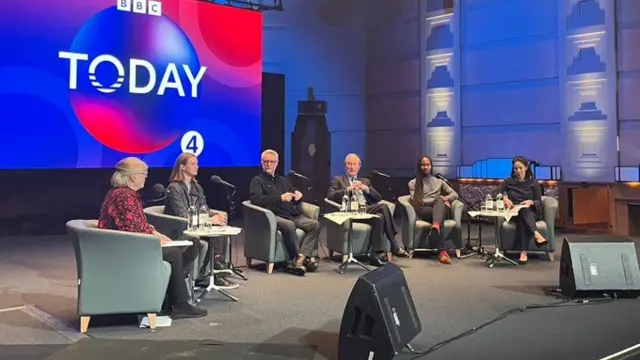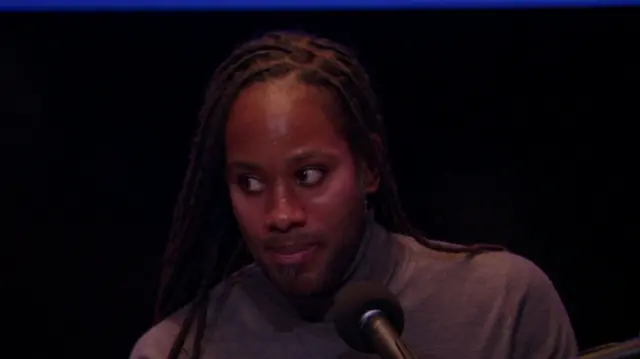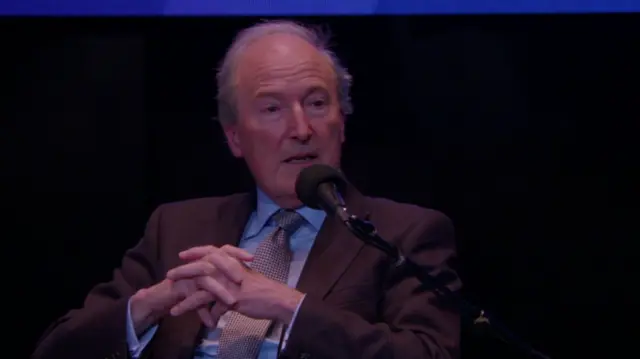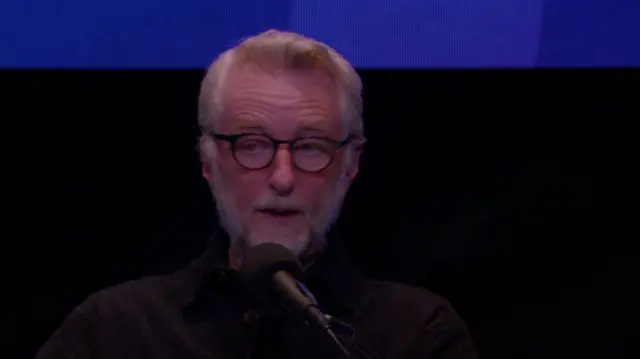Thank you and goodbyepublished at 21:26 BST 25 April 2023
 Alys Davies
Alys Davies
Live reporter
Thanks for following our coverage of the monarchy debate.
The panellists clashed over a number of topics, ranging from how relevant the monarchy is to different generations, to the wealth of King Charles and his future as head of state in Commonwealth nations.
A memorable line from Polly Toynbee concerning the monarchy's future stands out, in which she said: "the likelihood of three white men" ruling until the end of this century was "depressing" - referring to the line of succession from King Charles, to Prince William, to Prince George.
Another that sticks out, this time from Charles Moore was: "It's very interesting to me what we call our country and what it's called is the United Kingdom of Great Britain and Northern Ireland. And that's very significant because if it wasn't a kingdom, it wouldn't be united."
With that, we are bringing our coverage to an end.
The page was brought to you by Nathan Williams, Gabriela Pomeroy, Laura Gozzi, Aoife Walsh and myself.



